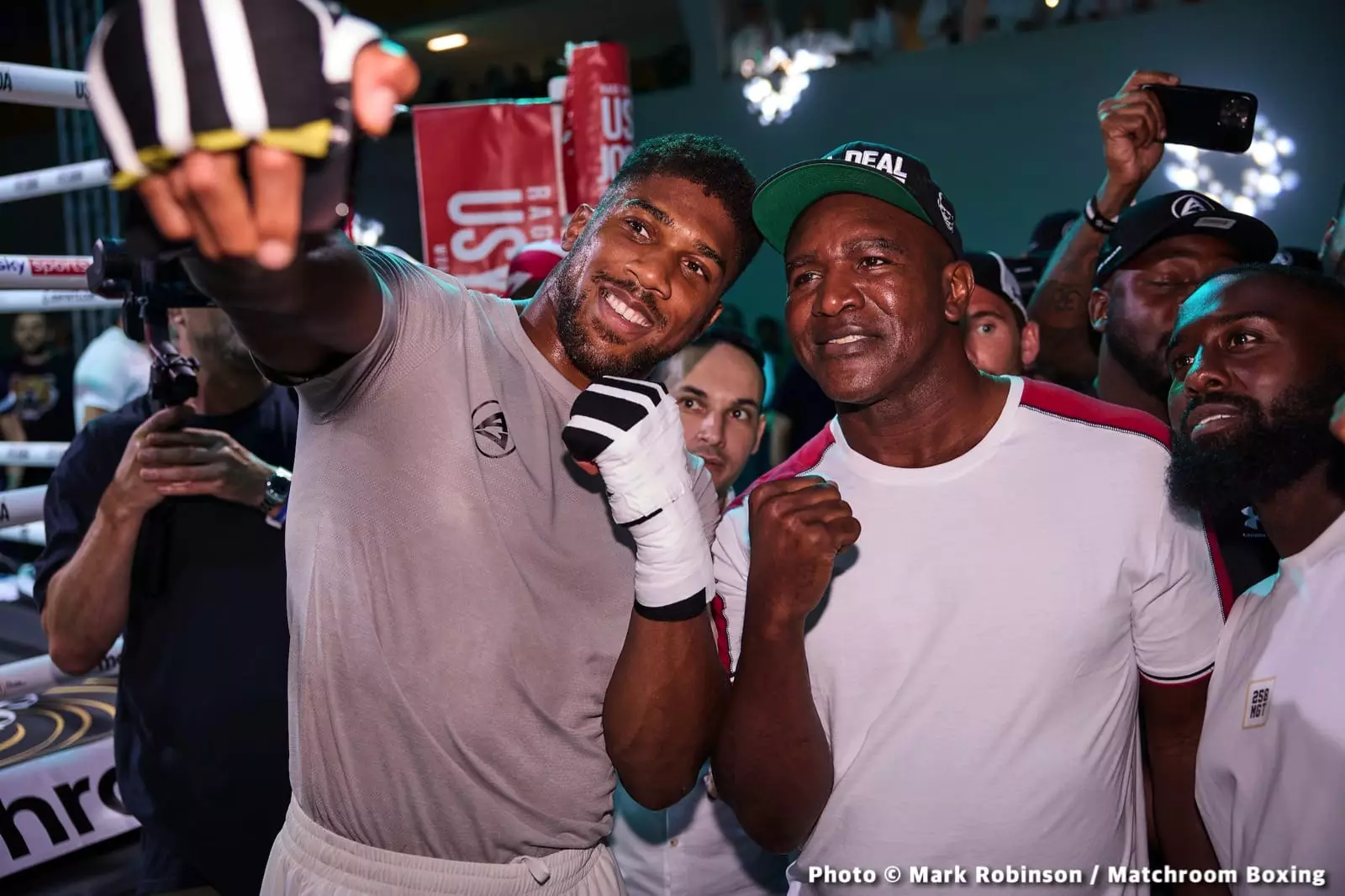Evander Holyfield, a name that resonates with boxing aficionados and casual fans alike, recently made headlines during the Ring Magazine Awards in London. This former unified cruiserweight and heavyweight champion took the opportunity to make a powerful claim regarding his legacy in the world of boxing. He pointed out that he is the only four-time heavyweight champion—a record that he feels is both undervalued and overshadowed by the iconic Muhammad Ali. In discussing his accomplishments, Holyfield stirred the pot of historical narratives within the sport, presenting a unique opportunity to analyze the various dimensions of greatness in boxing.
Holyfield holds an impressive record within his career, capturing the heavyweight title on four distinct occasions: first as the undisputed champion from 1990 to 1992, then as a two-time holder of the WBA and IBF titles from 1993 to 1994 and again from 1996 to 1999, and finally winning the WBA title in 2000. His journey through the heavyweight division involved victories over formidable opponents like Buster Douglas, Riddick Bowe, and George Foreman. While the sheer number of titles is a critical factor in evaluating a fighter’s success, other elements demand attention.
The concept of ‘greatness’ within boxing is multi-faceted. It is typically defined not just by the number of titles a boxer has won but also by the quality of opposition faced. While Holyfield certainly has an impressive résumé, it is essential to juxtapose it against that of Muhammad Ali. Ali’s career took place during a time when he faced some of the greatest heavyweights, all while there was only one recognized champion. This singular context influenced the competitive landscape and augmented the significance of Ali’s victories.
Holyfield’s insistence on being recognized as superior to Ali hinges largely on his title accomplishments. Yet, a breakdown of the opponents he faced raises questions about the weight of his claims. For instance, his noteworthy victory over John Ruiz, while certainly commendable, does not generate the same level of historical significance as Ali’s triumphs over Sonny Liston or Joe Frazier. The matchups against former champions and legendary figures are vital benchmarks that contribute to a boxer’s legacy.
To further contextualize this debate, we must also consider how many titles were available during each fighter’s respective eras. Holyfield fought during a time of multiple champions—WBA, IBF, WBO, and others—which significantly diluted the competition in the heavyweight landscape. This is not to downplay Holyfield’s accomplishments, as his wins were noteworthy and many of them came against heavyweights far larger than him. However, it raises a pivotal question: does the abundance of titles weaken the merit of those achievements?
Holyfield’s perspective on his legacy highlights a broader issue related to how historical narratives are constructed in sports. While one can make a case for his achievements deserving greater recognition, the mainstream media perpetuates a narrative that often favors fighters like Ali. Factors like cultural impact, charisma, and representation of a sport also contribute to how athletes are remembered long after they’ve hung up their gloves.
In the realm of sports, public sentiment often outweighs empirical data. While Holyfield’s four-time championship status is an impressive feat, it is crucial to examine the context behind these victories. The landscape of boxing is influenced not just by statistics but also by narratives, stories, and moments that elevate a fighter from an athlete to a legend.
In the end, both Evander Holyfield and Muhammad Ali are critical figures in the history of boxing, each having carved their niche and narrative. Holyfield’s claim to being the greatest is certainly passionate and rooted in a formidable career. Yet, as we scrutinize the layers of greatness and historical significance, we see that boxing is not merely about the number of titles but the fighters, their legacies, and the eras in which they competed. Rather than a rivalry over who deserves the title of ‘greatest,’ perhaps it is more fitting to celebrate the unique greatness that each boxer brought to the sport.

